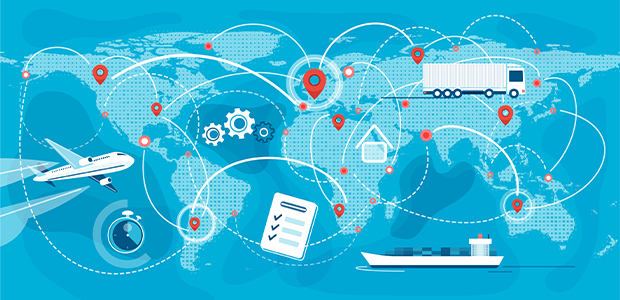
Mastering the EU’s CSDDD: 10 steps to future-proof your company
It’s all change for ESG (Environmental, Social, and Governance) reporting in the European Union. While some EU countries already have well-established national rules governing the risk of violations of human and environmental rights in supply chains, scope has been inconsistent from one country to another.
On July 25, 2024, the Council of the European Union approved the Corporate Sustainability Due Diligence Directive (CSDDD), marking a new era of common and clear corporate responsibility reporting. What does this mean in practical terms? Starting from around 2027 to 2028, large companies will be required to assess their supply chains for potential human rights violations and environmental harm. They will also have to provide a report on the implementation of their due diligence measures, including key outcomes and challenges faced.
Penalties for non-compliance with the provisions of CSDDD will be linked to the company’s net turnover.
While SMEs are not covered by the proposed rules, they may be indirectly affected as business partners in value chains.
Fast-growing startups should strategically align their ESG goals with the CSDDD directive, which is widely regarded as the global benchmark for responsible supply chains, human rights and environmental sustainability. This alignment not only positions startups at the forefront of ethical business practices, but also underscores the importance of adapting to the rapidly evolving regulatory landscape that all businesses must navigate.
Few are prepared for CSDDD
Businesses face a pivotal moment: adapt or risk falling behind. Are they ready? It seems not. A massive 84% of European-based corporations feel underprepared to comply with CSDDD, according to one recent study.
There will be costs to bear. But the biggest challenge is a lack of visibility across supply chains. Some companies are well-versed in sustainability and social welfare issues and have built transparency and accountancy into their supplier relationships, but this is relatively new to the majority. Executive boards will be racing against the clock to accelerate their own sustainability strategies.
Collecting and managing the necessary data, and being able to present it in ways that will meet the requirements of CSDDD reporting, is a huge hurdle to overcome for many companies.
Practical steps for compliance
As a supply chain expert in the clothing sector, I believe companies should transform the ‘challenges’ of complying with the directive into a competitive advantage.
By taking the following steps, businesses can build more resilient, transparent and responsible business practices, positioning themselves as leaders in sustainability:
- Map your obligations: Begin by conducting a thorough review of existing due diligence processes, ensuring they are robust enough to identify, assess and mitigate risks related to human rights and environmental impacts across their entire supply chain, back to origin.
- Policy development: Develop or update policies related to human rights and environmental standards in line with the CSDDD.
- Strengthen supply chain oversight: Initiate pathways for visibility and governance of extended supply chains globally, including the sourcing of raw materials, waste management and labour practices
- Improve partnership and engagement with key suppliers: Implement a comprehensive compliance program which does not exclusively rely upon outdated audits to ensure the correct suppliers are selected, and they understand the required operating standards. Invest time and training, engagement and resources in supplier relationship-building. Remember to consider supply chain consolidation wherever possible
- Supplier agreements: Update contracts to include specific sustainability and due diligence obligations
- Employee training: Educate employees, particularly those in procurement and supply chain management, about the new requirements and their roles in compliance
- Monitoring tools: Invest in technologies and tools that can monitor supply chain activities in real-time
- Enhance reporting and transparency: Invest in reporting tools and develop clear and comprehensive reporting mechanisms to publicly disclose due diligence activities and their outcomes
- Consider stakeholder engagement: Engage with stakeholders, including investors, consumers, and appropriate NGOs, to communicate efforts and gather feedback
- Industry collaboration: Work with industry peers to share best practices and develop industry-wide standards
Technology takes the strain
Entrepreneurs will know that technology plays a critical role in enhancing due diligence processes and providing tools for better supply chain visibility, risk management and compliance tracking.
Implementing the atma.io connected product cloud platform, that unlocks the power of connected products by assigning unique digital IDs to everyday items, supports transparency by providing an immutable record of every transaction and process in the supply chain. This technology can help trace products – whether they be high-tech headphones or a pair of jeans - back to their source, ensuring all stages of production meet the required standards.
AI can be used to analyse vast amounts of data from the supply chain to detect patterns and predict potential risks. For example, machine learning algorithms can identify suppliers who are at higher risk of non-compliance based on historical data and external factors such as political instability or environmental changes.
Many retailers are investigating the role RFID will play in enhancing supply chain visibility. RFID tags allow retailers to track products throughout the supply chain in real-time. This level of visibility helps in monitoring the movement of goods, ensuring that they are sourced, produced, and handled according to the standards set by the CSDDD.
Future forward
The exact timeline for CSDDD implementation depends on the final adoption process and subsequent transposition into national laws by EU Member States. But the fact remains that the vast majority of organisations have their work cut out.
Startups should get going. By proactively embedding due diligence processes, committing to supply chain oversight, and embracing transparency from day one, fledgling businesses can not only prepare for future compliance, but also build more resilient and responsible business practices.

